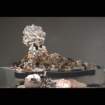 |
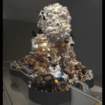 |
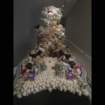 |
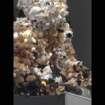 |
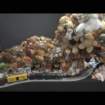 |
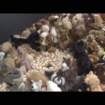 |
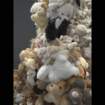 |
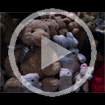 |
2007
dimensions: 8’ h 5’ w 12’ l
materials: steel, electronics, train and track, motors, plush animals
site: DeCordova Museum and Sculpture Park, Lincoln, MA
commissioned by: DeCordova Museum
Hundreds of plush animals form a landscape in the shape of a baby pushing itself up, looking at its surroundings. The baby is surrounded by a fence reminiscent of the camps in Poland and Germany during World War II. A train traverses the exterior of the fence line, entering and exiting the sculpture through Auschwitz styled gates.
Parallel to the irony voiced in the message over the Auschwitz gates, “Arbeit Macht Frei” (work makes you free), there are Jack-in-the-Box sentries posted at each gate. As the train enters the gate, the sentries rise out of their protective shells to greet the visitors suggesting there is hope for the newly arrived. Also guarding the gates are dogs and wolves. Within the compound are other guard dogs including six Rottweiler that bark at random intervals harassing the population. As the train passes through the compound some of the captives within the fence will rise up slowly and turn to look at the passing train. It is a very slow, tired and lifeless animation.
There are crows perched as observers on the shoulders of the baby always present where death and decay are widespread (also a nickname for the guards at some camps). Behind the child are hundreds of small mice being herded toward an abyss representing the millions of children that perished in these camps.
Plush is a memorial to the children of holocausts. At once soft and inviting and yet filled with disturbing vignettes and animations.
Plush was part of a show, Trainscapes: Installation Art for Model Railroads, where a fully functional O-scale model railroad traverses and connects one dozen fanciful landscapes.
From the Catalog:
Trains can evoke a variety of emotions. For example, while on the one hand we associate model trains with children and play, real trains have a haunting history. Immigrants built the railroads in the United States under horrible conditions, and trains transported people to concentration camps during the Holocaust. These conflicting feelings are expressed by Stuart Schechter's Plush. The pleasant innocence of youth appears in the stuffed animals and the larger form of the baby, while the penned-in toys and their menacing actions suggest the darker side of trains.
Copyright © 2014 SSchechter LLC